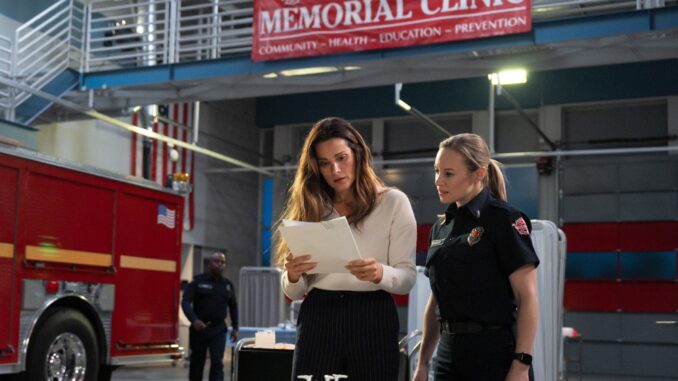
The Echo of Maya and Carina: How Station 19's Lesbian Romance Resonates Beyond the Firehouse
The air crackles with tension, not from a roaring inferno, but from the silent electricity between two women. One, a fiercely independent firefighter, scarred by childhood trauma and driven by an insatiable need to prove herself. The other, a warm, empathetic OB-GYN, radiating strength in her compassion and grounded in her unwavering belief in the good in people. This is the heart of "Marina," the portmanteau lovingly bestowed upon Maya Bishop and Carina DeLuca, the lesbian romance that blossomed amidst the chaos of Station 19, and whose impact continues to reverberate far beyond the confines of the firehouse.
The power of Maya and Carina lies not just in their love story, but in its multifaceted portrayal. They weren't simply token representation, a fleeting nod to LGBTQ+ inclusion. Instead, their relationship was granted depth, complexity, and a genuine arc that mirrored the challenges and joys of any committed partnership. We witnessed their initial spark, the tentative exploration of their feelings, the push and pull of their contrasting personalities. We saw them navigate cultural differences, Carina’s Italian vivacity clashing with Maya’s ingrained control, creating friction that ultimately forged a stronger bond.
This commitment to authenticity is a cornerstone of their lasting impact. Unlike sanitized portrayals of queer love often seen on screen, "Marina" didn't shy away from the realities of lesbian relationships. We saw them struggle with issues of infertility, a particularly poignant storyline that resonated with countless viewers facing similar challenges. Their journey to parenthood, explored with sensitivity and nuance, highlighted the complexities and beauty of creating a family through IVF and surrogacy. It normalized the existence of queer families, offering a powerful counter-narrative to traditional depictions of family structures.
Beyond the personal, "Marina" also resonated with viewers by showcasing the intersectionality of their identities. Carina, an Italian immigrant, brought a different cultural perspective to the show, forcing Maya to confront her own biases and expand her understanding of the world. The show explored the specific challenges faced by queer women in professional settings, particularly in the traditionally masculine world of firefighting. Maya's ambition, often interpreted as aggressive, was contrasted with the societal expectations placed upon women, highlighting the double standard she faced in her career. This willingness to delve into these complexities made "Marina" more than just a romance; it became a platform for exploring important social issues.
The impact of this representation extends beyond entertainment. For many viewers, "Marina" was a beacon of hope, a source of validation, and a catalyst for self-acceptance. Seeing a lesbian couple thrive on screen, navigate challenges, and ultimately build a loving and supportive family, provided much-needed visibility and representation for those who often felt invisible. This visibility matters. It creates space for dialogue, challenges prejudice, and fosters a more inclusive and understanding society.
The enduring legacy of Maya and Carina lies in their ability to humanize the LGBTQ+ experience. They weren't just characters; they were relatable individuals with flaws, strengths, and dreams, just like anyone else. Their love story, told with sincerity and authenticity, broke down stereotypes, challenged norms, and ultimately left a lasting impact on viewers who found themselves reflected in their journey. As the firehouse lights dim on Station 19, the echo of "Marina" will continue to resonate, a testament to the power of representation and the enduring impact of a love story that burned bright on our screens.